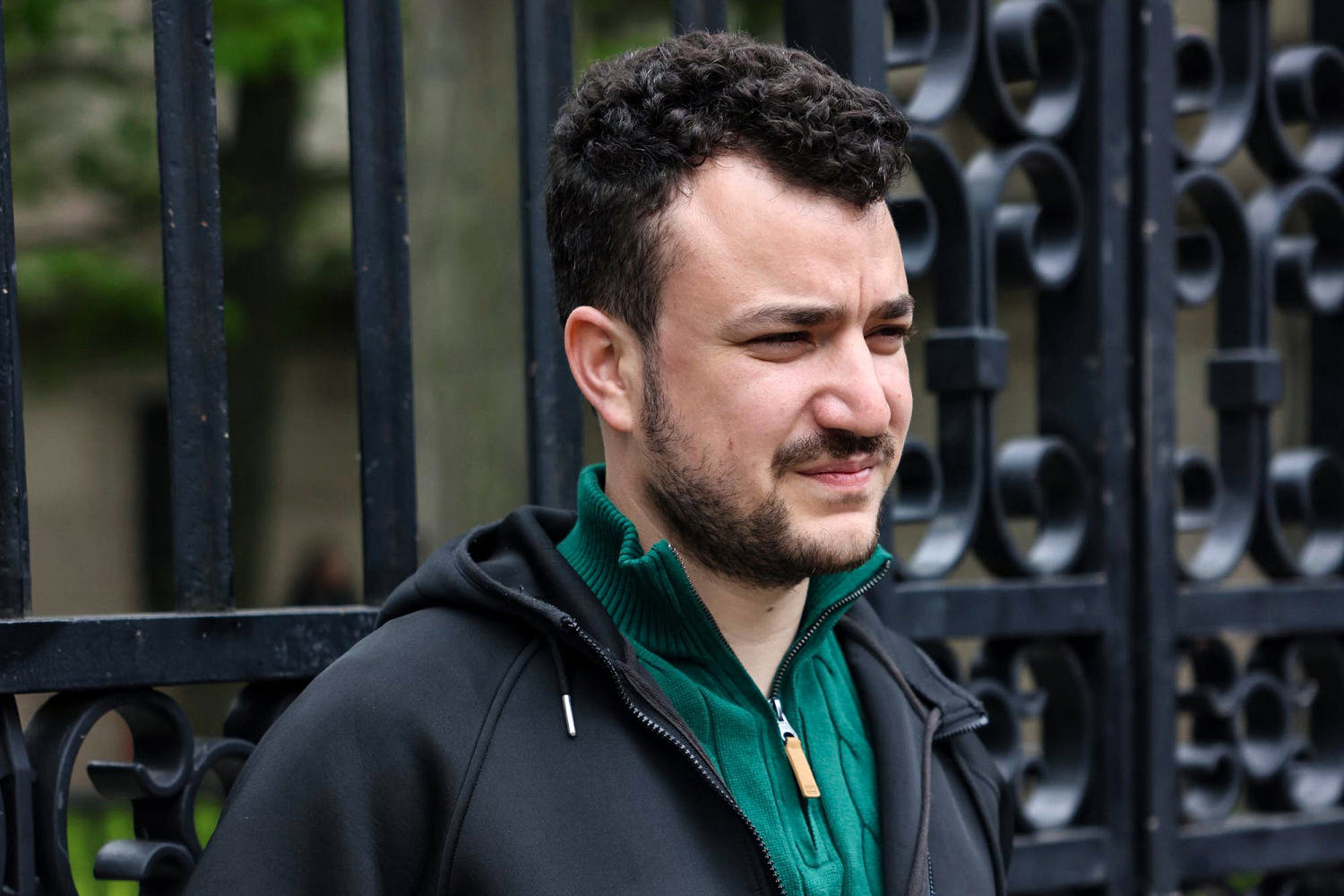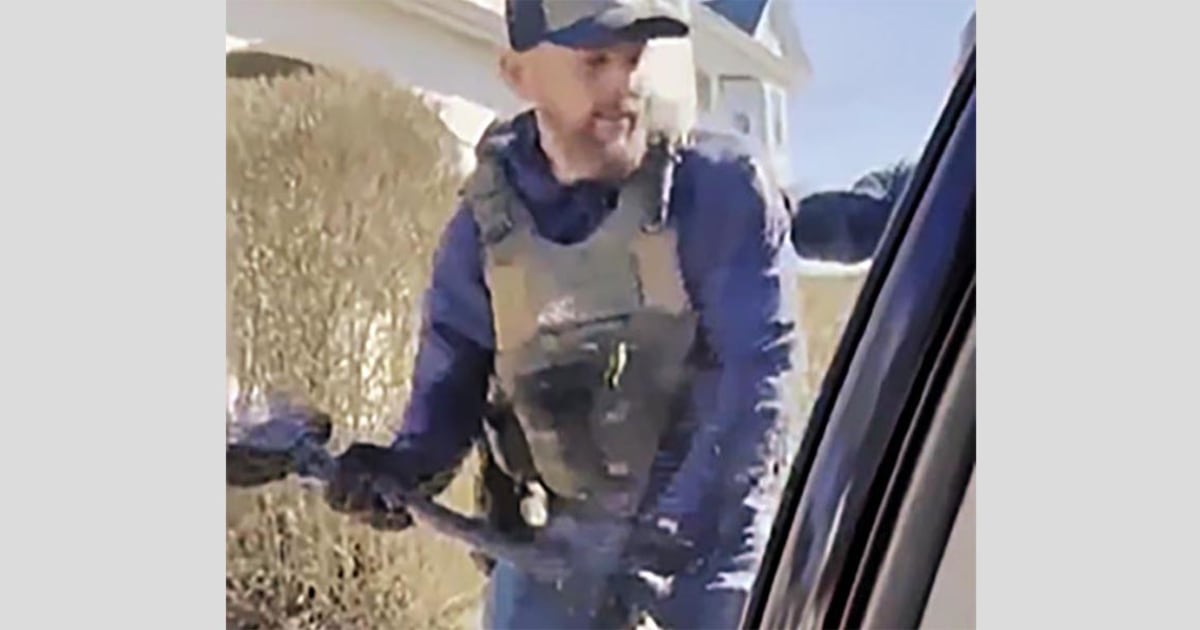
The former Columbia University student arrested on campus and slated for deportation has filed evidence that shows claims underlying the government’s case are dubious.
NBC News reviewed over 100 pages of documents submitted by the federal government in its effort to deport Mahmoud Khalil, as well as evidence filed by Khalil’s legal team, including his permanent residency application, several articles about his activism and contracts and letters detailing internship and work experience.
In some instances, the government appears to be relying on unverified tabloid articles about Khalil. In others, the government’s claims about him are clearly erroneous because timelines don’t match.
Lawyers for Khalil, a 30-year-old permanent U.S. resident, have contended he was arrested on March 8 for his protected speech and for playing a key role in the pro-Palestinian student protest movement last year.
Khalil’s legal team declined to comment for this article.
The administration of President Donald Trump — which says it has revoked the visas of hundreds of international students, particularly targeting those who take part in political activism — has presented shifting arguments against Khalil, including claims two weeks after his arrest that he lied on U.S. residency application forms, a deportable offense.
Ultimately, government officials said Khalil supported Hamas, a terrorist group; made Jewish students feel unsafe with his activism; and that his continued presence “would have serious adverse foreign policy consequences for the United States.”
The Department of Justice did not immediately respond to a request for comment Monday.
Khalil decried antisemitism
Immigration Judge Jamee Comans ruled last week that Khalil can be deported at the discretion of Secretary of State Marco Rubio under the Immigration and Nationality Act of 1952, which states any noncitizen can be removed if the secretary of state deems their presence threatens U.S. foreign policy.
Rubio characterized Khalil’s activities as antisemitic and, thus, contrary to U.S. foreign policy. Comans shot down a defense attempt to obtain underlying evidence and question Rubio.
Khalil’s attorney submitted evidence rebuking allegations of antisemitism in the Rubio memo.
Khalil’s legal team cited an April 2024 CNN article as evidence. In it, Khalil was asked what he would say to Jewish students who felt unsafe on campus.
“I would say that the liberation of Palestine and the Palestinians and the Jewish people are intertwined,” he responded. “They go hand in hand. Anti-Semitism and any form of racism has no place on campus and in this movement.”
In the article, Khalil also noted that some members of Columbia’s protest encampment last year were Jewish and held Passover seders. “They are an integral part of this movement,” Khalil said.
Rubio’s memo — which is the government’s main piece of evidence in its deportation case against Khalil — said that while Khalil’s beliefs, statements, or associations were “otherwise lawful,” allowing him to remain in the country would undermine “U.S. policy to combat anti-Semitism around the world and in the United States, in addition to efforts to protect Jewish students from harassment and violence in the United States.”
One of Khalil’s attorneys, Marc Van Der Hout, previously said such government claims are “baseless allegations in an attempt to hide from the fact that its true motivation in bringing all these charges against Mahmoud is to silence him.”
Mischaracterization of Khalil’s work history
The government case includes Khalil’s permanent residency application from March 2024.
In the application, Khalil wrote that he was a graduate student at Columbia University and was a program manager at the British Embassy in Beirut from June 2018 to December 2022.
The Trump administration alleged Khalil also omitted “continued employment” at the British Embassy in Beirut “beyond 2022.” As evidence, the government cited an image of a profile of Khalil published for the Society for International Development’s upcoming conference in June 2025. The profile stated he works at the embassy.
But a spokesperson for Britain’s Commonwealth and Development Office said in a comment to NBC News that Khalil “does not work for the FCDO and has not done so for over two years.”
Khalil’s “extension of fixed term contract” with the British Embassy in Beirut includes an extension until Dec. 20, 2022. The contract is dated Nov. 1, 2022, and the British Embassy in Beirut seal is stamped on the document. Signatures from both the head of corporate service and Khalil appear on the document.
The Society for International Development, organizers of the conference, said in a statement that Khalil was not scheduled to participate in the upcoming event in June, though he did participate in 2020.
The government alleged Khalil also failed to disclose he was a “political affairs officer” at the United Nations Relief and Works Agency for Palestine Refugees, known as UNRWA, in New York in 2023, and was involved with the group Columbia University Apartheid Divest.
The Trump administration cited articles, including from the New York Post, stating Khalil was a political affairs officer at UNRWA based on his LinkedIn profile.
A spokesperson for UNRWA said Khalil completed a six-month unpaid internship in New York in 2023. The spokesperson added that he was not a staff member, nor was he ever on the agency’s payroll.
“UNRWA does not have in its Human Resources the job title of ‘Political Affairs Officer,'” the spokesperson said.
Khalil’s legal team also submitted into evidence a letter from UNRWA to Columbia University informing the school that Khalil was “selected for an internship at the Representative Office of the United Nations Relief and Works Agency for internship at the Representative Office of the United Nations Relief and Works Agency for Palestine Refugees (UNRWA) in New York.” It was dated May 17, 2023.
In another letter entered into evidence, Columbia University said Khalil completed an internship at UNRWA for three credits in 2023. The letter is dated April 10, 2025, and signed by an associate director of Khalil’s graduate program.
Columbia University declined to comment Monday, citing student privacy obligations.
Government relied on tabloid stories
Similarly, the government cited several articles as evidence, including from the New York Post, The Times of India, and the Washington Free Beacon, mentioning Khalil’s involvement with the group Columbia University Apartheid Divest (CUAD), which the government said he omitted from his residency application.
The articles were published in late April 2024 and after — a month after Khalil submitted his permanent residency application.
A New York Post article published on March 9, 2025, and cited as evidence by the government, said Khalil fronted a “radical group, Columbia United Apartheid Divest (CUAD), which sympathizes with terror groups like Hamas and Hezbollah and calls for the ‘end of Western civilization.’”
Khalil was a negotiator and spokesperson for the Columbia University student protesters, which included CUAD among a coalition of groups at Columbia participating in the on-campus actions, Van Der Hout previously said.
“CUAD is a collection of organizations and there is no individual membership, so the allegation would be completely meritless even if all of the government’s evidence were not from a month after Mahmoud submitted his application,” Van Der Hout said.
Khalil has until April 23 to file for relief and can remain in the United States until then.








